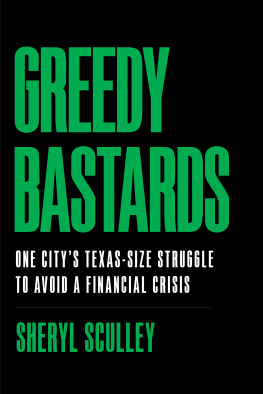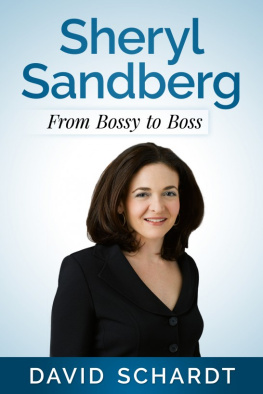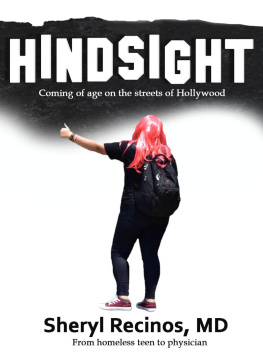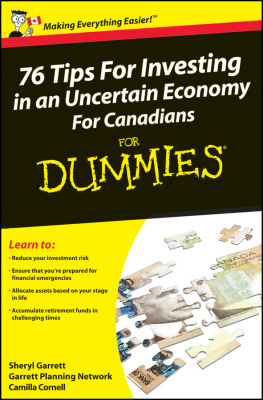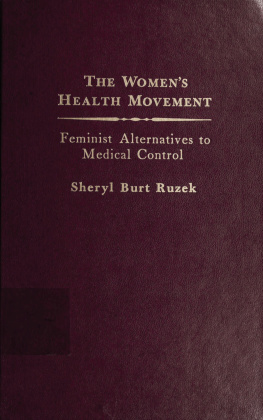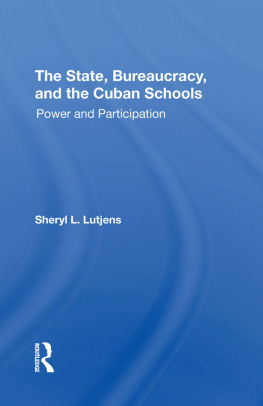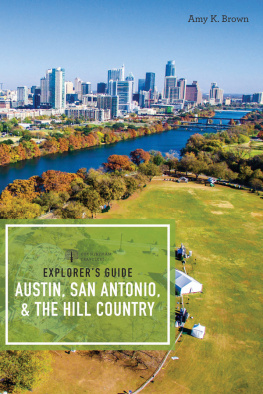All rights reserved.
To the residents of San Antonio, we accomplished so much together. I was proud to work on your behalf every day.
To our citys first responders, thank you for the sacrifices you make to keep us safe.
Letter from the Author
We Plan, the Virus Laughs
April 19, 2020
San Antonio, Texas
Dear Reader,
Its mid - April in 2020 as I write you this note. By the time youre reading it, at least four months will have passed, though Greedy Bastards was originally slated for release exactly one month from today. Ive had that publication date, May 19, 2020, on my calendar for ages.
Then in March, COVID -19 consumed our country and the world. Life as we knew it paused. That meant a giant shift in how Id hoped to tell you this story.
You see, from the start I was dug - in on making this book as timely as possible. The events of its final pages hadnt even played out when I started writing, but I was committed to having the book ready to publish the moment the fire union arbitration was decided.
To make that happen, I developed a plan and established deadlines for myself, just as Ive done with everything else in my professional life. I signed a contract with a publisher just after serving my final days in city hall. On the heels of my April 2019 retirement, I started writing. Throughout the summer and fall I worked, meeting every deadline along the way, and after the first of the year I headed into revisions. I penned an epilogue to the manuscript in February, when the arbitration decision finally came down. Everything was falling into place.
What I didnt plan for, though, was a pandemic.
In early March, as I was sending my manuscript off for its final proofreading round, the novel coronavirus had already engulfed China, Italy, and Spain, and begun its attack on the United States. Now its April, and Im proud to be holding my ready - for - the - presses book in - hand . Around me, though, our country is on lockdown. So were delaying the release of Greedy Bastards, for several reasons.
First and foremost, the publics focus is on avoiding this cruel virus, treating those who are infected, and supporting our communities through its reign. Thats as it should be.
Second, social distancing requirements and travel restrictions mean book launch eventsreadings, signing parties, speaking engagements, media interviewscannot go on as scheduled.
Third, theres the elephant in the room: this books title.
Front-Line Workers are Heroes
Ive preserved the original introduction to this book. In it, I clarify that the phrase greedy bastards isnt one I coined. Rather, its borrowed from the president of the San Antonio Police Officers Association, who uttered it in a video to accuse me of portraying the associations membership as such. I didnt. And by the time youve finished reading this book, youll know that I never would. I respect our citys first responders. Still, with the rise of COVID -19, I worry about this title being misconstrued during this pandemic.
More than ever, I feel in awe of front - line workers as a whole. Im reading the same news reports you are: stories about community members putting their own health at risk in service to their neighbors. Some are dying in the process. We are indebted to so many, including: healthcare workers, pharmacists, grocery store clerks, truck drivers, first responders, farmers, bus drivers, restaurant workers, delivery people, trash collectors, childcare providers, food pantry workers, local government leaders, and others who are keeping our communities going. Essential workers have emerged as the heroes of this crisis.
And of course there are our nations teachers; parents of school - age children tell me theyve never appreciated educators more than in this moment. Our consciousness as a whole seems to have been raised surrounding the labor, dedication, creativity, and talent required of teachers. After this crisis, perhaps these indispensable professionals will finally receive the respect (and remuneration) they deserve.
A Timely Message, After All
While observing our citys stay - at - home order, Ive had lots of time to think about how this experience will alter the future of our public sector. In doing so, Ive realized theres a final reason this publishing delay makes sense: it turns out my story is growing more relevant, not less, as time goes on.
Because, even as we all dream of a post - COVID -19 world, were realizing it cant look like the old one. We cant go back to business as usual.
Cities will need to deeply examine their organizations, deciding what changes theyll make to address the challenges and opportunities that this crisis has highlighted. The issues are many. Front - line workers must be better supported. Too many Americans lack a proper safety net. Remote work is more practical than we believed. The digital divide is untenable when 25 percent of students are unreachable during distance learning, in some districts. The need to address health care costs, and consider untying insurance from employment, is no longer debatable.
To address the issues Ive noted, amidst unprecedented financial losses, it will be more important than ever to take an unsentimental look at old business models.
Thats precisely why my team and I decided to update our unsustainable police and fire union agreements. And because we did, San Antonio will spend $150 million less during the five years the new contracts cover. Thatll mean a lot to a city projecting hundreds of millions in lost revenue due to COVID -19.
The concept of examining the sacred cows in city hall goes way beyond updating union contracts. Yes, changing those earned us headlines. But I oversaw the update of countless legacy processes as San Antonios city manager, such as towing outsourcing, trash collection, early - intervention providers, construction delivery methods, and many more.
If we want Americas cities to be ready to address the problems its residents face nowand those future challenges well never see comingwe cant be afraid to examine old business models.
And, spoiler alert, that is the actual moral of the story youre about to read.
Its not that unions are evil (theyre not) or that I believe police officers or firefighters to be greedy (I dont). Nor is it that all legacy solutions are inherently ineffective. Instead its that we mustnt consider a business model permanent just because thats the way weve always done it.
Nothing can be permanent if we want our cities to keep up with citizens needs against a backdrop of unrelenting change.
In the four months between today and my books new publication date, Im sure even more facets of everyday life will have changed. That truth, however, will not have.
Read in good health,


